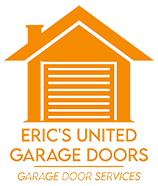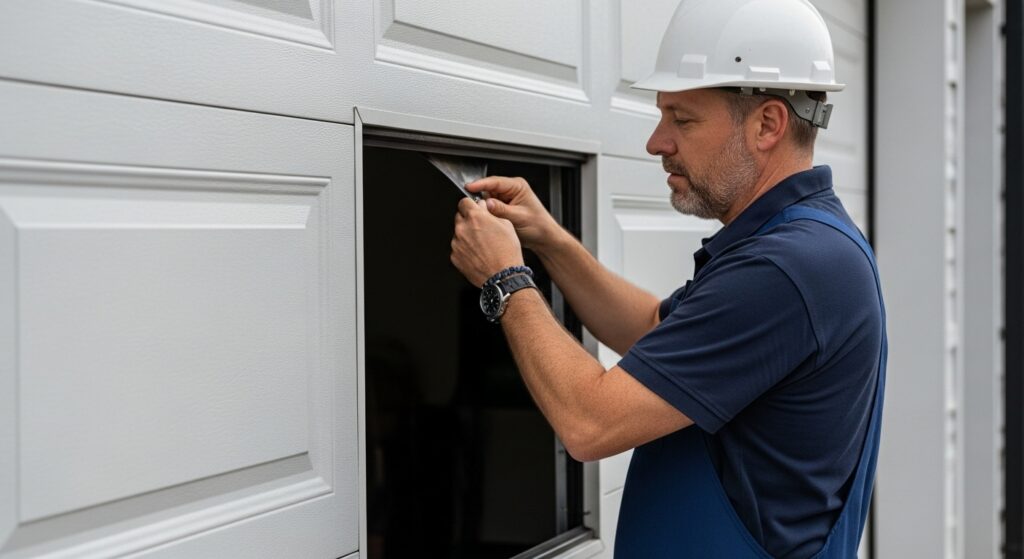A garage door is one of the largest moving systems in any home, and it plays a major role in security, convenience, and daily functionality. Because of its weight and the strain placed on its mechanical components, problems can develop gradually—or suddenly—and ignoring them can lead to unsafe conditions, property damage, or a complete system failure. Knowing when your garage door needs immediate repair can help you avoid stressful emergencies and ensure your home stays secure and accessible.
Below are the top seven signs that your garage door requires prompt attention. Each one indicates an underlying issue that should not be ignored, as these problems often worsen with time.
1. Loud or Unusual Noises
Garage doors naturally make some noise when operating. However, if you begin to notice grinding, screeching, popping, rattling, or banging, these are clear signs something is not functioning as it should.
What causes unusual noises?
- Worn or loose rollers can create grinding or vibrating sounds as they move along the track.
- Dry or poorly lubricated components may squeak or screech.
- Broken or failing springs often pop or bang loudly under tension.
- Misaligned tracks lead to rattling as metal components shift unevenly.
These sounds may start softly and gradually intensify, or they may appear suddenly. Either way, noisy operation is one of the earliest—and most important—indicators that a repair is needed.
Why this requires immediate attention
Ignoring unusual noises can lead to more serious damage, such as a roller leaving the track or a spring snapping. Prompt inspection prevents costly and dangerous failures.
2. Slow Response or Delayed Movement
If your garage door hesitates before moving, operates sluggishly, or seems to struggle through its cycle, something is clearly wrong.
Possible causes include:
- Worn-out springs beginning to lose tension
- Electrical issues with the opener
- Obstruction in the tracks preventing smooth movement
- Motor strain from an aging or malfunctioning opener
- Cold weather stiffness, which can worsen existing issues
A delay of more than a second or two is not normal and is a sign that the door is facing mechanical resistance or electrical difficulty.
Why this requires immediate attention
A door that moves slowly may soon fail to open or close completely, leaving your home exposed or making it difficult to access your garage. It also places additional strain on the opener, which can lead to premature breakdown.
3. Sagging Sections or Uneven Movement
A well-functioning garage door should move straight and evenly, staying level as it opens and closes. If you notice the door tilting to one side, sagging in the middle, or moving unevenly, there is a serious alignment or structural issue.
Common causes of sagging:
- Loose or damaged cables on one side
- Worn rollers, particularly on one side of the door
- Bent tracks from impact or metal fatigue
- Warped panels on older wooden doors
- Weakening springs, causing the door to tilt
You can test this yourself by disconnecting the opener and manually lifting the door halfway. If it doesn’t stay in place, or if it tilts, it is unbalanced.
Why this requires immediate attention
An unbalanced door places significant pressure on the opener and can cause premature motor burnout. In severe cases, the door can come off its tracks or collapse, creating a serious safety risk.
4. The Door Won’t Open or Close Fully
A garage door that does not complete its movement is a clear sign of trouble. This can manifest as the door stopping halfway, reversing direction unexpectedly, or not responding at all.
Potential causes:
- Sensor misalignment, especially if the door won’t close
- Opener settings, such as travel limits being off
- Obstructions, even something small like debris in the track
- Broken springs, which instantly stop operation
- Damaged tracks, forcing the system to halt
If your door refuses to budge, or it only partially opens or closes, immediate repair is necessary.
Why this requires immediate attention
A malfunctioning door can trap your vehicle, prevent access to your home, or leave your property unsecured. When the door stops midway, it can also create a dangerous scenario where the door may fall unexpectedly.
5. The Door Is Off Track
One of the most serious issues is when the garage door comes off its tracks. This can happen suddenly, often with a loud noise, and usually results from:
Common causes:
- Impact, such as accidentally hitting the door with a car
- Broken cables, causing sudden imbalance
- Rollers wearing out or breaking
- Loose or bent tracks
A door off track often looks slanted, jammed, or stuck on one side. This is not a problem that resolves on its own.
Why this requires immediate attention
A garage door off track is extremely dangerous. The door is heavy and can collapse or fall without warning. Trying to force it back into place can cause injury or further damage, so this situation requires immediate professional repair.
6. Broken Springs or Cables
Your garage door relies on its springs and cables to lift and lower safely. These components carry a tremendous amount of tension, and when they fail, the entire door system becomes compromised.
Signs of broken springs include:
- A loud bang from the garage
- The door feeling extremely heavy
- The door not opening at all
- Visible gaps in the spring coil
Signs of damaged or broken cables include:
- Loose or hanging cables
- The door slamming shut
- Uneven movement or jamming
Springs and cables often wear out from natural use over time, but they can also break suddenly.
Why this requires immediate attention
A broken spring or cable is a critical safety hazard. These parts should never be handled without proper tools and training due to the risk of high-tension injury. Delaying repairs can also cause damage to the opener and other components.
7. Increased Vibration or Shaking
If your garage door shakes excessively, vibrates, or jerks as it moves, there may be mechanical issues that need immediate attention.
Common causes:
- Loose hardware, such as bolts, brackets, or hinges
- Worn rollers, especially old metal ones
- Misaligned tracks, creating uneven pressure
- Opener problems, causing jerky movement
While a small amount of vibration is normal, shaking or shuddering signals deeper issues.
Why this requires immediate attention
Vibration forces the door’s components to work harder than necessary and can loosen hardware even further, leading to sudden failures. Addressing it early prevents bigger mechanical breakdowns.
Why Addressing Garage Door Issues Immediately Matters
Delaying garage door repairs can cause:
- Safety hazards, including the potential for the door to fall
- Further mechanical damage, resulting in more extensive repairs
- Stress on the opener, leading to motor failure
- Security risks, leaving your home more vulnerable
- Inconvenience, such as being unable to access your garage
A garage door in good condition should operate smoothly, quietly, and consistently. At the first sign of trouble, prompt repair ensures your system remains safe, reliable, and long-lasting.
Final Thoughts
Your garage door is a vital part of your home’s safety, convenience, and security. Recognizing the warning signs early can save you from costly repairs and prevent dangerous situations. Whether you notice strange noises, uneven movement, or a door that simply refuses to open or close, taking action quickly is the best way to preserve your system and maintain peace of mind.

